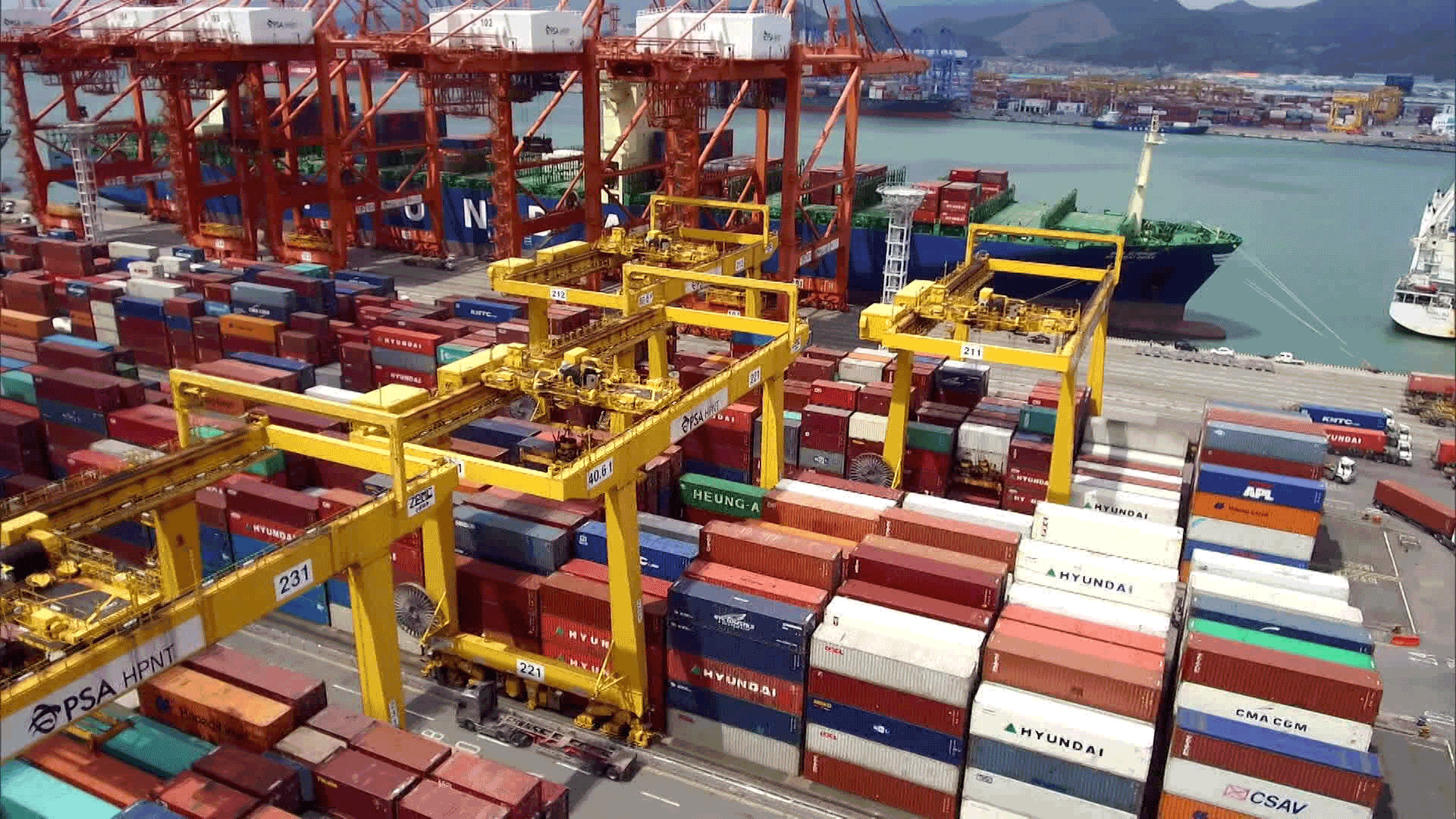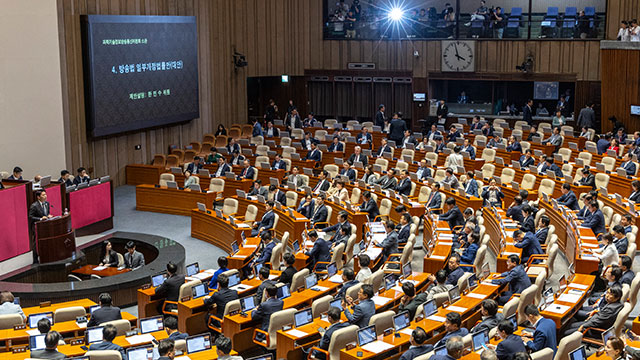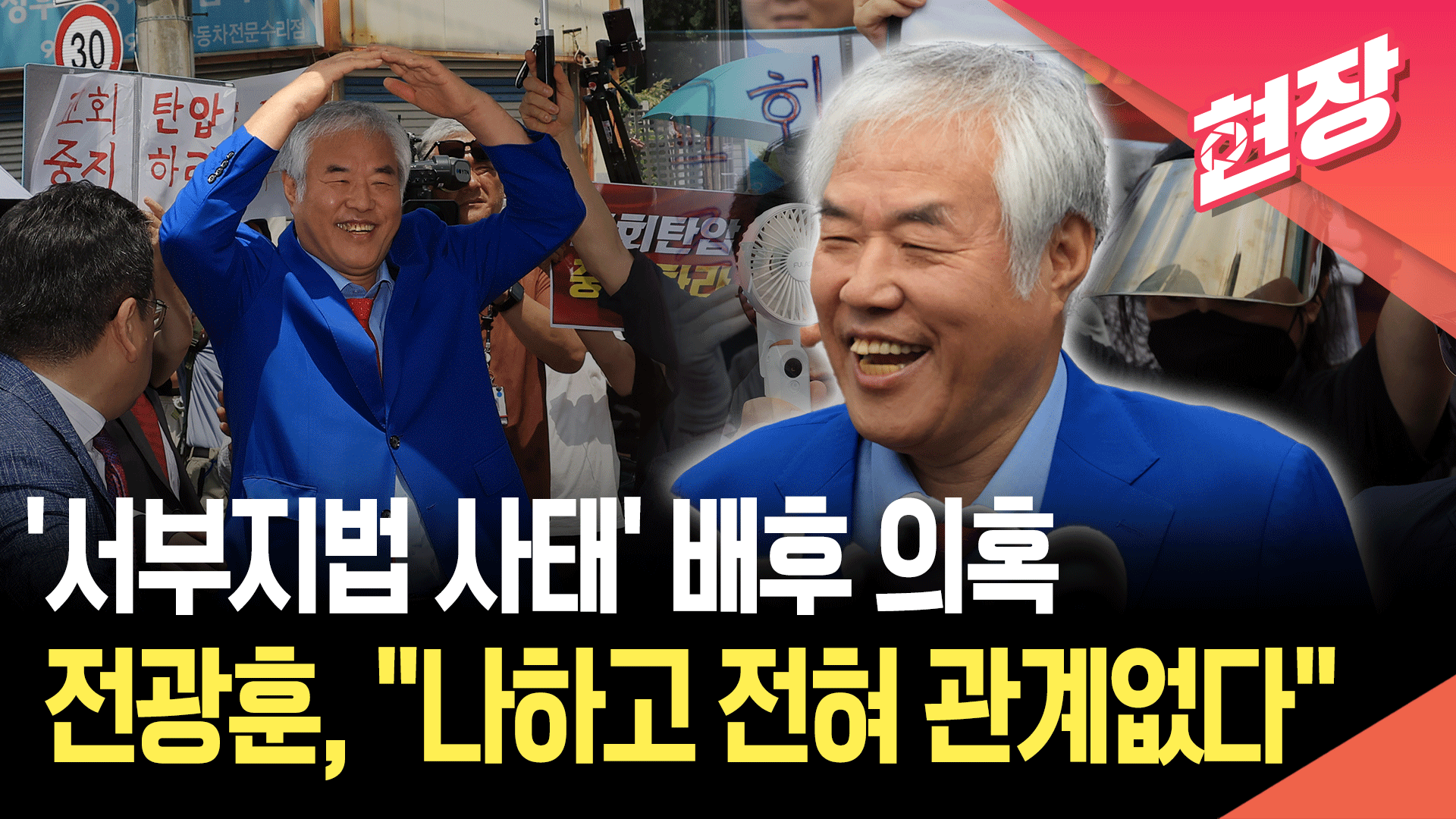[Anchor]
Now, we take a closer look at the aftermath of the tariff war initiated by the United States.
While our government is evaluated to have passed its first diplomatic test, companies are now facing more complicated calculations.
With reciprocal tariffs at 15%, businesses are strategizing on where to produce and sell in order to avoid the repercussions.
Lee Jae-hee reports.
[Report]
The U.S. shipyard of Hanwha, which has garnered attention through the 'MASGA' project.
Even just before the conclusion of negotiations, close aides of President Trump visited the shipyard, rapidly elevating it as the center of U.S.-Korea shipbuilding cooperation.
[Koo Yoon-cheol/Minister of Economy and Finance/Yesterday: "In the shipbuilding sector, we are strategically set to invest with the U.S., and we will ensure a strategic approach to handling this domestically."]
The steel industry, heavily impacted by the 50% high tariffs, is also stepping up efforts to establish local production bases.
Hyundai Steel has begun ground surveys and equipment bidding, aiming to complete its Louisiana steel mill by 2029.
The automotive industry has lost the price competitiveness it once had under the Korea-U.S. FTA, particularly in comparison to Japan and other countries.
Hyundai Motor Group plans to increase annual production capacity at its Alabama and Georgia plants from one million to 1.2 million vehicles.
[Lee Seung-jo/Head of Hyundai Motor Planning and Finance Division/2nd Quarter Earnings Announcement/Last Month: "We aim to promote strategic localization of parts. Additionally, we will carefully review expanding local production of finished vehicles under various scenarios..."]
Samyang Foods, known for its 'Buldak' brand, is considering raising prices for products exported to the U.S., reflecting the struggles across the entire industry.
With nearly 20% of total exports going to the U.S. market, there are concerns about sensitivity to tariffs, and calls for government support for market diversification are emerging.
[Jung Cheol/President of the Korea Economic Research Institute: "The government could help lay down the export infrastructure so that small and medium-sized enterprises can expand export to two or three countries..."]
There are also demands for economic revitalization measures to prevent job losses caused by the relocation of production bases.
KBS News, Lee Jae-hee.
Now, we take a closer look at the aftermath of the tariff war initiated by the United States.
While our government is evaluated to have passed its first diplomatic test, companies are now facing more complicated calculations.
With reciprocal tariffs at 15%, businesses are strategizing on where to produce and sell in order to avoid the repercussions.
Lee Jae-hee reports.
[Report]
The U.S. shipyard of Hanwha, which has garnered attention through the 'MASGA' project.
Even just before the conclusion of negotiations, close aides of President Trump visited the shipyard, rapidly elevating it as the center of U.S.-Korea shipbuilding cooperation.
[Koo Yoon-cheol/Minister of Economy and Finance/Yesterday: "In the shipbuilding sector, we are strategically set to invest with the U.S., and we will ensure a strategic approach to handling this domestically."]
The steel industry, heavily impacted by the 50% high tariffs, is also stepping up efforts to establish local production bases.
Hyundai Steel has begun ground surveys and equipment bidding, aiming to complete its Louisiana steel mill by 2029.
The automotive industry has lost the price competitiveness it once had under the Korea-U.S. FTA, particularly in comparison to Japan and other countries.
Hyundai Motor Group plans to increase annual production capacity at its Alabama and Georgia plants from one million to 1.2 million vehicles.
[Lee Seung-jo/Head of Hyundai Motor Planning and Finance Division/2nd Quarter Earnings Announcement/Last Month: "We aim to promote strategic localization of parts. Additionally, we will carefully review expanding local production of finished vehicles under various scenarios..."]
Samyang Foods, known for its 'Buldak' brand, is considering raising prices for products exported to the U.S., reflecting the struggles across the entire industry.
With nearly 20% of total exports going to the U.S. market, there are concerns about sensitivity to tariffs, and calls for government support for market diversification are emerging.
[Jung Cheol/President of the Korea Economic Research Institute: "The government could help lay down the export infrastructure so that small and medium-sized enterprises can expand export to two or three countries..."]
There are also demands for economic revitalization measures to prevent job losses caused by the relocation of production bases.
KBS News, Lee Jae-hee.
■ 제보하기
▷ 카카오톡 : 'KBS제보' 검색, 채널 추가
▷ 전화 : 02-781-1234, 4444
▷ 이메일 : kbs1234@kbs.co.kr
▷ 유튜브, 네이버, 카카오에서도 KBS뉴스를 구독해주세요!
- Korea reacts to tariff impacts
-
- 입력 2025-08-03 00:13:01

[Anchor]
Now, we take a closer look at the aftermath of the tariff war initiated by the United States.
While our government is evaluated to have passed its first diplomatic test, companies are now facing more complicated calculations.
With reciprocal tariffs at 15%, businesses are strategizing on where to produce and sell in order to avoid the repercussions.
Lee Jae-hee reports.
[Report]
The U.S. shipyard of Hanwha, which has garnered attention through the 'MASGA' project.
Even just before the conclusion of negotiations, close aides of President Trump visited the shipyard, rapidly elevating it as the center of U.S.-Korea shipbuilding cooperation.
[Koo Yoon-cheol/Minister of Economy and Finance/Yesterday: "In the shipbuilding sector, we are strategically set to invest with the U.S., and we will ensure a strategic approach to handling this domestically."]
The steel industry, heavily impacted by the 50% high tariffs, is also stepping up efforts to establish local production bases.
Hyundai Steel has begun ground surveys and equipment bidding, aiming to complete its Louisiana steel mill by 2029.
The automotive industry has lost the price competitiveness it once had under the Korea-U.S. FTA, particularly in comparison to Japan and other countries.
Hyundai Motor Group plans to increase annual production capacity at its Alabama and Georgia plants from one million to 1.2 million vehicles.
[Lee Seung-jo/Head of Hyundai Motor Planning and Finance Division/2nd Quarter Earnings Announcement/Last Month: "We aim to promote strategic localization of parts. Additionally, we will carefully review expanding local production of finished vehicles under various scenarios..."]
Samyang Foods, known for its 'Buldak' brand, is considering raising prices for products exported to the U.S., reflecting the struggles across the entire industry.
With nearly 20% of total exports going to the U.S. market, there are concerns about sensitivity to tariffs, and calls for government support for market diversification are emerging.
[Jung Cheol/President of the Korea Economic Research Institute: "The government could help lay down the export infrastructure so that small and medium-sized enterprises can expand export to two or three countries..."]
There are also demands for economic revitalization measures to prevent job losses caused by the relocation of production bases.
KBS News, Lee Jae-hee.
Now, we take a closer look at the aftermath of the tariff war initiated by the United States.
While our government is evaluated to have passed its first diplomatic test, companies are now facing more complicated calculations.
With reciprocal tariffs at 15%, businesses are strategizing on where to produce and sell in order to avoid the repercussions.
Lee Jae-hee reports.
[Report]
The U.S. shipyard of Hanwha, which has garnered attention through the 'MASGA' project.
Even just before the conclusion of negotiations, close aides of President Trump visited the shipyard, rapidly elevating it as the center of U.S.-Korea shipbuilding cooperation.
[Koo Yoon-cheol/Minister of Economy and Finance/Yesterday: "In the shipbuilding sector, we are strategically set to invest with the U.S., and we will ensure a strategic approach to handling this domestically."]
The steel industry, heavily impacted by the 50% high tariffs, is also stepping up efforts to establish local production bases.
Hyundai Steel has begun ground surveys and equipment bidding, aiming to complete its Louisiana steel mill by 2029.
The automotive industry has lost the price competitiveness it once had under the Korea-U.S. FTA, particularly in comparison to Japan and other countries.
Hyundai Motor Group plans to increase annual production capacity at its Alabama and Georgia plants from one million to 1.2 million vehicles.
[Lee Seung-jo/Head of Hyundai Motor Planning and Finance Division/2nd Quarter Earnings Announcement/Last Month: "We aim to promote strategic localization of parts. Additionally, we will carefully review expanding local production of finished vehicles under various scenarios..."]
Samyang Foods, known for its 'Buldak' brand, is considering raising prices for products exported to the U.S., reflecting the struggles across the entire industry.
With nearly 20% of total exports going to the U.S. market, there are concerns about sensitivity to tariffs, and calls for government support for market diversification are emerging.
[Jung Cheol/President of the Korea Economic Research Institute: "The government could help lay down the export infrastructure so that small and medium-sized enterprises can expand export to two or three countries..."]
There are also demands for economic revitalization measures to prevent job losses caused by the relocation of production bases.
KBS News, Lee Jae-hee.
-
-

이재희 기자 leej@kbs.co.kr
이재희 기자의 기사 모음
-
이 기사가 좋으셨다면
-
좋아요
0
-
응원해요
0
-
후속 원해요
0











![[단독] 민주당 ‘검찰개혁안’ 입수… 중수청, 행안부 산하로 결론](/data/fckeditor/new/image/2025/08/05/316901754372034845.jpg)



이 기사에 대한 의견을 남겨주세요.